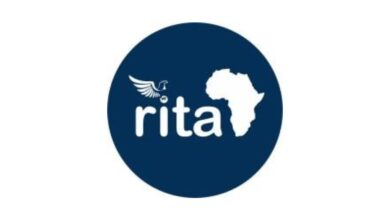Federal Government Recruitment Of 3,500 Teachers for Unity Colleges: Apply Now
In a significant move to enhance the quality of education across Nigeria, the Federal Government has announced plans to recruit 3,500 teaching staff for Unity Colleges nationwide. This initiative is part of a broader strategy aimed at strengthening the educational framework within the country and addressing the pressing challenges facing the education sector.
Collaborative Efforts for National Educational Reform
The Ministry of Education, under the leadership of the Minister of State for Education, Dr. Yusuf Sununu, is spearheading this recruitment drive. In collaboration with the Office of the Head of Service, the Federal Civil Service Commission, and other relevant government agencies, the Ministry is ensuring that the recruitment process is streamlined and effective.
Dr. Sununu made this announcement during the National Stakeholders’ Forum on Senior Secondary Education, a two-day event dedicated to discussing education policies and reforms. This forum serves as a platform for stakeholders to share insights, address challenges, and propose solutions for improving senior secondary education in Nigeria.
“We are committed to improving the educational standards in Federal Unity Colleges,” Dr. Sununu stated. “The recruitment of 3,500 teaching staff is a crucial step in achieving this goal. We are working closely with various government bodies to ensure that this process is completed efficiently and that the new teachers are well-prepared to contribute to our education system.”
Enhancing Teacher Training and Development
In addition to the recruitment of new teaching staff, the Ministry of Education has outlined plans for extensive training and retraining programs for both new and existing teachers. These programs are designed to equip educators with the necessary skills and knowledge to meet the evolving needs of students and to ensure that they are prepared to deliver high-quality education.
Dr. Sununu emphasized the importance of continuous professional development for teachers, noting that it is essential for maintaining high standards in education. “By investing in the training of our teachers, we are investing in the future of our students and, ultimately, the future of our nation,” he added.
Addressing Unemployment Through Educational Initiatives
This recruitment drive also has significant implications for addressing youth unemployment in Nigeria. The Minister of State for Labour and Employment, Mrs. Nkeiruka Onyejeocha, has highlighted the pressing issue of youth unemployment, with over 13 million young people currently without jobs. The government’s efforts to create employment opportunities, such as this recruitment initiative, are crucial in tackling this challenge.
The recruitment of 3,500 teachers is part of a larger strategy by the Federal Government to create jobs and lift people out of extreme poverty. Earlier this year, the government began implementing measures to expand employment opportunities and encourage participation in wealth generation activities. These efforts include the distribution of working tools to beneficiaries across the country and the promotion of micro, small, and medium-sized enterprises (MSMEs).
Broader Economic and Social Impacts
The Federal Government’s focus on job creation is further exemplified by the Labour Employment Enhancement Programme (LEEP), which aims to create 2.5 million jobs. This initiative is part of the government’s broader agenda to achieve zero hunger, zero poverty, economic growth, and decent jobs for all Nigerians.
Mrs. Onyejeocha has underscored the importance of these initiatives, stating that they are vital for addressing the structural challenges in the Nigerian economy, particularly in terms of unemployment and poverty alleviation. By focusing on job creation and improving access to education, the government is taking significant steps towards building a more prosperous and equitable society.
Conclusion
The recruitment of 3,500 teaching staff for Unity Colleges marks a significant milestone in the Federal Government’s ongoing efforts to improve education in Nigeria. This initiative not only addresses the immediate needs of the education sector but also contributes to broader social and economic goals, such as reducing unemployment and poverty. As the government continues to implement these strategies, there is hope for a brighter future for Nigerian students and the nation as a whole.




